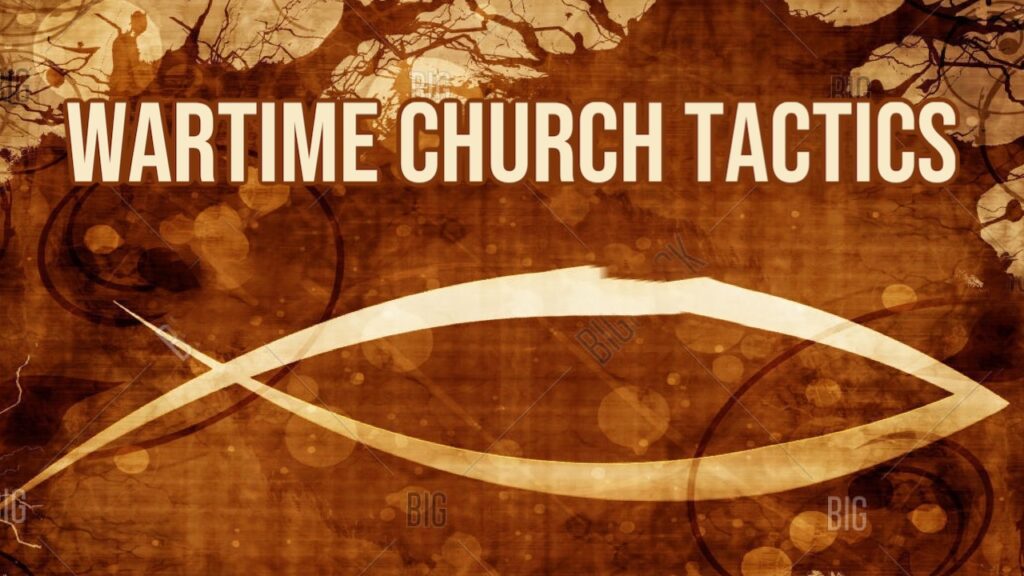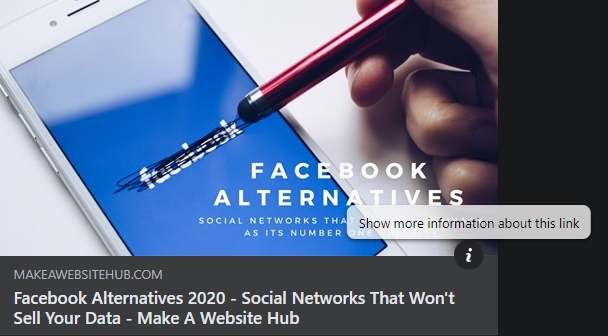Over the last several years, the church has seen attacks on it’s freedoms. Now, more than ever, we need to reassess how we can send our message out to a lost and dying world when we are blocked through traditional means.

Most of us recognize the “Jesus Fish” but don’t remember how it came into being. In a nutshell, “Ichthys” happened out of necessity during the first few centuries of the church because of growing persecution. Believers would have this in locations where they could safely meet, the meaning understood by believers at the time. The local authorities would not know the meaning of this symbol, thus protecting the meeting place & members from torture and death. In essence, this was the first use of a “cipher” within the body of Christ.
I think we, as Christians, need to quickly adopt a way of letting others know who we are while keeping our identity secret to prying eyes.
The Problem
With many churches and Christians (myself included) adopting various social media platforms as our means of communication, spreading the Gospel, teachings, and worship, we have left ourselves open to those messages being controlled and even stifled by Facebook, Instagram, Twitter, YouTube, TikTok, and other platforms. The example below is proof of this occurring, and this is but one. In the event that this Tweet was taken down, you can view the story here.
This is what we’ve come to in America!
Instagram is now classifying my WORSHIP videos as “harmful or false information” ??♂️
Religious Liberty? Freedom of Speech? Big Tech censorship? pic.twitter.com/I7s6HUfKH4
— Sean Feucht (@seanfeucht) June 23, 2020
What Instagram did was wrong, from the standpoint of ideals, but we must understand that while we are utilizing traditional forms of social media – and we have been conditioned to do so for a generation – we have to “obey the house rules,” and those rules are constantly being changed to suit the ever grown “evolving” morals of our society. All of us that use these platforms agreed to the terms and conditions when we signed up and we can leave at anytime, but leaving is much harder than it used to be.
We have our friends, content, communication, and our basic lives attached to our Facebook profiles, YouTube channels, and Instagram pages. It would be hard to “move out” and uproot to a new “neighborhood,” but we (Christians and churches) need to think about doing this now as opposed to later if we are to survive in the coming months and years.
While being “peaceful as doves,” we must also be “shrewd as serpents,” to quote Jesus. Our online ministries, in their various forms, depends on it.
Speaking as a person who has been involved with technology, content creation, website design, and social media marketing for some time, I will speak to this area.
Websites – they’re still a necessity
Back in the early 2000s, it was cool to have a website. You could put anything and everyone in one spot with a URL (Uniform Resource Locator). You could speak your mind, upload music, video and other content while directing your friends, family, and strangers to read, watch, or listen to what you had to say.
This is no longer the case as many have left websites and have set up Facebook, YouTube, and Instagram profiles/pages to be their voice. Those people have forgotten that, from the owners side of things, that being the owners & employees of social media, your site, and everything that is associated with it can be thrown down the memory hole in a single click.
Websites are different and are paid for by you. Websites are so much more easier to manage today than ever before. Websites can be started up quickly and you barely have to work with code
I purposefully made the “paid for by you” in bold because YOU pay for your space, not ads, businesses, government grants – you. This is important to know for the reason below.
Social media depends on dollars. Dollars are gained by ads. When you have businesses unhappy with how the collective work of social media is run, they can pull their dollars, thus making it hard on the platforms. YouTube, Facebook, Instagram, Snapchat, TikTok, Twitter – they’re all at risk if businesses pull their money from the platform, and if the “adpocalypse” of late 2016 was not a clear example, I don’t know what was.
If you’re a church, and even if you’re a Christian, you should invest in a website, hosted by a business that is in the business of website hosting only (not Google or Amazon). You can post the truth of Jesus Christ, Bible commentary, the Gospel and anything else Kingdom related and it will still be around, even if your link to your website page was taken down by Instagram or Facebook. A website give your more control and is a last line of defense against an ever-growing censorship happy America.
Using code and symbols again
While this may sound a little out there, Christians should really start to use code again, and not the “Christian-ese” than many already know. While I’m not saying that the cross shouldn’t be used, it is pretty recognizable. Early Christians understood the new meaning of the cross, but chose to use the fish to keep under the radar of the authorities that be.
We can do the same.
If we are going to continually use traditional forms of social media, we need to adopt certain code imagery or phrases that are recognizable by our groups and churches across the globe. Christians should begin – now – to set up ciphers among various groups. In cryptography, a cipher (or cypher) is an algorithm for performing encryption or decryption—a series of well-defined steps that can be followed as a procedure. An alternative, less common term is encipherment. To encipher or encode is to convert information into cipher or code. Utilizing this, we can send messages in innocent looking images, video, and text, keeping the true message hidden from various algorithms and prying eyes. The early Christians did it and I think we should too.
Using secondary links
If you look on Facebook, you can see the “info” button on each link that is posted.

Various social media platforms keep a very detailed record of websites and what they are about. Using primary links – links that you post to Facebook DIRECTLY from the website – could get your content flagged.
Using a website or page that has links to your REAL website and/or page will keep the robotic censors off your back. You can set links several generations deep and the only inconvenience that people will have is an extra click/tap or two.
Alternative social media platforms
Alternatives to the social media giants have been around for quite some time. It’s hard for us to think about, letting alone starting over on another platform. It would be like moving to another town and moving the entirety of your friends/family with you. The two big reasons why many of us haven’t totally left Facebook, YouTube, and the rest, is because our people aren’t there and having to learn a new platform.
Many alternatives that are out there offer something that the giants don’t – decentralization, and that’s a very good thing.
Centralized platforms are much more susceptible to attacks and monetary influences, as well as censorship. While you do have policies that you have to adhere to on the alternatives, most of us wouldn’t think about putting up a recipe to poison someone, child pornography, or a snuff video, so you are pretty much safe.
Home based servers & portable servers
Bandwidth and technology has gotten infinitely better than the early part of the millennium, and it is not impossible to have a home-based server housing your website and content. Heck, you can even have your own Facebook-like social media site, housed in your basement. Cost and technology infrastructure are minimal and you can even take the site with you. All you would have to do is pay for a domain name (you don’t even have to do that – just use an IP address), redirect it to your server and you’re set.
Mobile based
It has become so much easier to “AirDrop” files and content to a group of people via your phone. While this method of shearing the Gospel and Kingdom Teachings may be slower than blasting over a website and/or social media, it can be done. Passing along a censored video from a pastor doing worship from phone to phone would have bypassed the censors all together.
Portable & mobile storage
I hold in my hand, years worth of data, which includes video, images, music, documents, and everything else digital that is important to me.

With this, I don’t have to worry about Facebook deleting my page, Instagram deleting my photos, YouTube deleting my videos, because they are all right here. I can copy these files to any number of other portable storage devices. An entire worship service, comprising of years worth of video can be put here.
You can also pay for online storage that reaches into the terabytes. I personally use and pay for Dropbox. From there, I can download and save any number of files, work on documents online, and share the content via computer or mobile device.
In conclusion:
I’m not a “bunker-in-the-basement” guy who looks over his shoulder, but I can see the writing on the wall. Our worship needs to adapt if we are to thrive. There may be a time where our churches may not be able to be accessed, and, for many, this would be the end of fellowship.






